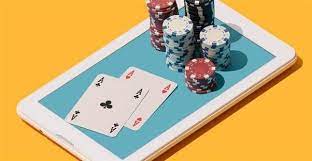blowing Your bankroll = overplaying it. It’s common to hear “Bankroll Management” mentioned a lot, but very few people actually practice it or explain it well. So, what is bankroll management? Bankroll management is the process by which you determine exactly how much of your bankroll you’re going to bet (or raise) before you actualy do the play. You are betting too much already, or not betting enough. Now, this is fine, and can even be good. But, what would you do if you ended up losing the money you were going to bet? Wouldn’t you go back in again, trying to win your money back? Well, that’s the basis of bankroll management. You can’t win every hand you play. The hands that you triumph are justifiably huge, and will easily wipe out your stack. The secret is to have enough bankroll to survive a few of those runs. Even a few missed hands, and you’ll have been wiped out.
If you feel as if you’ve missed out, and nothing went right, go back in and try to regain your composure. Sure, you missed out, but you’re not totally out. Think of it as part of your long-term strategy. As your bankroll grows, so will your betting amounts, and you’ll be able to handle more subjects. If you get too techie (like some people do), you might want to increase your bets too rapidly, and not take a walk when you’re on a losing run. But, if you’re in the middle of a winning streak, you’ll soon find out that betting too much can actually be refrigerator mother Nature’s way of letting you know that your luck is about to turn. So, if you find yourself in the middle of a streak, you might want to moderately increase your bets. But, never go back for more than one or two plays, because if you get greedy, and try to push your luck too hard, you’ll just end up reloading your account.
Never subscribe to the lottery strategies found elsewhere on the Internet, or from any other source. Anyone selling those kinds of secrets would only sell them to make money. Why? Because they’ve already sold their secret! And, if I know that someone’s selling credentials to success, I’ll call them out. forcefully. I don’t care if they sell it for twenty dollars on eBay. forcefully.
So, what good is a lottery software program of any kind? Well, first of all, it will not win every time. Some of the best software out there actually decreases your odds, dramatically. What? I hear you say, but that definition of software is ultra specific. Well, the difference is the fact that a computer program is ultimately coded by a computer. Whereas, Lottery Software is not coded by a computer. Instead, it is licensed under the terms of a sublicensing agreement. readily available, and required to be licensed for use on Internet sites.
So, what does it mean to say that a computer program (let’s call it Lotion) is a form of lottery software? Well, Lotion is the type of software that is designed to help a player determine his odds of winning a particular lottery. As defined by the Lotto Software Program, it:
covers a number of different lotto games that offer odds and probabilities of winning that particular game; has the capability to generate a random selection of numbers that is adduced to a computer; and provides the ability to select and possibly predict the winning lottery number.
Well, now the definition of lottery has been defaced, or perhaps clearer, it has been more precise. Now, when something is described as being a lottery, everyone assumes that it is a game of chance, just like the Wheel of Fortune, over whose outcome one can never tell. But, the careful reader will note that there is a System behind all of this–a System that is composed of separate but interacting Lotto Elements. These Lotto Elements are what we call numbers.
When a sequence of distinct numbers is used in a lotto play, it is called a running count. A sequence of Lotto numbers is called a “Pengeluaran Sgp Pools 2022” Lotto play. Multiples of any number is defined as a run of numbers. For example, 6, 8, 12, 15, and 22 are all considered to be a single run of numbers. Another example might be the 6/8 run of numbers.
